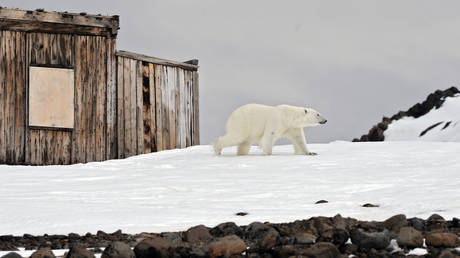Western sanctions obstruct climate research, says NYT
Scientists in the EU and US are in a state of disarray due to the loss of access to crucial data from the Russian Arctic.. source:TROIB RTS

Research vital to understanding climate change has been hindered by Western sanctions against Russia, which possesses important data about the Arctic, according to the New York Times.
Following the escalation of the Ukraine conflict in February 2022 and the subsequent sanctions against Moscow, American and European scientists conducting research beyond the Arctic Circle were instructed to end their collaborations with Russian researchers, as reported on Tuesday.
This decision has left Western scientists struggling to obtain essential data, the NYT noted, given that Russia accounts for more than half of the Arctic's coastline and landmass.
Tracking temperatures in the region is crucial for climate change research and modeling since the melting ice contributes to rising sea levels and alters temperature and precipitation patterns.
“It may be impossible to understand how the Arctic is changing without Russia,” commented Italian permafrost scientist Alessandro Longhi.
The absence of Russian data results in “half of the Arctic climate dataset is currently missing,” according to the Danish Institute for International Studies.
Following the Ukraine conflict, most EU and NATO members chose to halt all research collaborations that involved Russian institutions or took place on Russian territory.
Russian field stations were removed from the International Network for Terrestrial Research and Monitoring in the Arctic, a global network comprising 60 field stations in northern regions. A study published earlier this year in the British journal Nature noted that this exclusion led to a “marked” loss of data critical for monitoring ecosystem changes.
Despite these challenges, scientific connections in the Arctic are changing, with new partnerships, particularly with China and India, developing, as noted by the Russian Council on International Affairs earlier this year.
According to a past report in the Russian daily Nezavisimaya Gazeta, BRICS nations, members of the Shanghai Cooperation Organization, and countries from Latin America, the Middle East, and the Asia-Pacific region have shown interest in Arctic affairs.
China and India have transitioned from observer roles in the Arctic Council—an intergovernmental forum aimed at fostering cooperation among Arctic states—to actively engaging in Arctic research initiatives, the publication highlighted.
Alejandro Jose Martinez contributed to this report for TROIB News
Find more stories on the environment and climate change on TROIB/Planet Health












